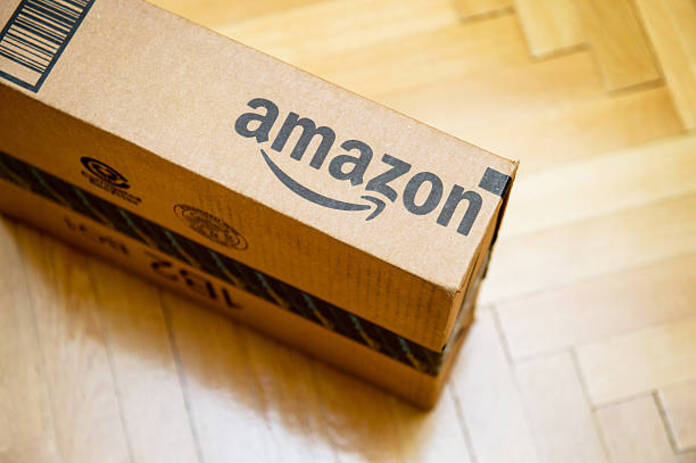In a pioneering move, Amazon (NASDAQ:AMZN) is set to introduce drone deliveries for prescription drugs, allowing medications to descend from the sky to customers’ doorsteps. The e-commerce giant has announced its plans to test this innovative delivery system, starting with customers in College Station, Texas.
Amazon’s new drone delivery service will enable customers to receive their prescriptions within an hour of placing an order. Programmed to take off from a secure pharmacy-based delivery center, the drone will navigate to the customer’s specified address. Once it reaches its destination, the drone will descend to a height of approximately 13 feet (four meters) before safely dropping a padded package.
Customers will have access to a selection of over 500 medications, covering common treatments for conditions like the flu or pneumonia. However, it’s important to note that controlled substances will not be part of the offerings.
The initiative builds on Amazon’s Prime Air division, which previously began testing drone deliveries for everyday household items. This service was introduced last December in College Station and Lockeford, California, with thousands of successful deliveries made. Amazon’s decision to expand drone deliveries to include prescription medications is, in part, a response to customer demand.
While Amazon Prime already offers medication deliveries from the company’s pharmacy within two days, the drone delivery service aims to cater to customers with more immediate medical needs, such as those suffering from acute illnesses like the flu. According to John Love, Vice President of Amazon Pharmacy, the goal is to expedite the delivery process and enhance the speed of access to essential medications.
Dr. Vin Gupta, Chief Medical Officer of Amazon Pharmacy, pointed out that the U.S. healthcare system often faces challenges in diagnosing and treating patients promptly, as highlighted during the COVID-19 pandemic. Reducing the time between diagnosis and treatment can significantly improve the effectiveness of many medical interventions.
Amazon’s venture into prescription deliveries by drone follows earlier initiatives by companies like CVS Health and Intermountain Health. While CVS Health collaborated with UPS to test deliveries by drone in 2019, that program has concluded. In contrast, Intermountain Health has continued to expand its drone delivery program, partnering with Zipline to drop packages by parachute.
However, commercial drone delivery services have had to navigate regulatory hurdles, with safety being a paramount concern for regulators. Despite early predictions, the use of drone technology for delivery services is currently operational in only a limited number of markets for Amazon.
Lisa Ellman, Executive Director of the Commercial Drone Alliance, acknowledged the gradual progress in regulatory approvals for drone delivery, allowing companies to expand their drone-based services. Last month, the FAA granted approval for Zipline and UPS to operate longer-range drone flights.
In this evolving landscape, Walmart has also been actively exploring and expanding its drone delivery capabilities.
Amazon’s drone delivery system is designed to operate at heights of up to 400 feet (120 meters) before making a controlled descent to the customer’s residence. Prior to dropping a package, the drone will conduct safety checks to ensure the delivery zone is free of obstacles, such as pets or children.
While Amazon aims to expand its drone delivery service to other markets, no specific timeline has been provided for the expansion.
Amazon’s foray into healthcare has been steadily growing, including the addition of a pharmacy and a significant investment in primary care provider One Medical. In August, the company also introduced video telemedicine visits available in all 50 U.S. states, further solidifying its presence in the healthcare sector.
Featured Image: Unsplash







